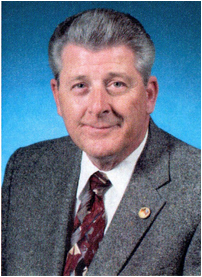Next ORION program on Aug. 15

The next ORION program will take place on Monday, Aug. 15, at 7 p.m., at the City Room of the McNalley-Coffee Building, Roane State Community College, Oak Ridge Campus.
The program is open to the public. The title of the program is “What are and Why Hypersonic Flight Systems." The speaker will be Douglas J. Elder.
Elder is an expert in hypersonic aerodynamics that has worked as program manager and chief engineer for NASA, Lockheed Missile & Space, McDonnell-Douglas, Rockwell International, Kaman Sciences, and Boeing, according to an ORION news release.
According to an ORION news release, hypersonic regime has the highest velocity of four different velocity regimes: (1) Subsonic: Mach less than 0.9; (2) Transonic: Mach from 0.9 to 1.2; (3) Supersonic: Mach 1.2 to 5; and (4) Hypersonic: Mach greater than 5. Hypersonic flight was first achieved when the German V2 rocket exceeded the Mach 5 barrier towards the end of World War II. Since then, both manned and unmanned reentry vehicles regularly exceed Mach 30. In recent years, electromagnetic railgun (EMRG) projectiles have achieved velocities greater than 2.5 km/s, and scramjet concepts have exceeded Mach 5. Scramjet (supersonic combusting ramjet) propulsion has been under development for over forty years but has only recently shown promising advancement and has caused much concern to the United States Department of Defense.
Hypersonic weapon systems reduce time to engagement (offensive and defensive) and induce incredible kinetic energy lethality. At such high speeds, just the impact against a threat can destroy it without the need for an explosive warhead. And defense against maneuverable systems is nearly impossible.
Because scramjets systems can only function under high rates of speed, they are either deployed from aircraft or boosted by rocket propulsion to obtain the required velocities. And their performance is susceptible to drag and high temperatures. Since these platforms are far more expensive and challenging to develop and build than existing systems, the question remains on their range of application as weapon systems or future aircraft systems. The speaker will also describe an available short course on amateur and model rocketry.
ORION is an amateur science and astronomy club supporting the Tamke-Allan Observatory and centered in Oak Ridge.
This article originally appeared on Oakridger: Next ORION program Monday night
